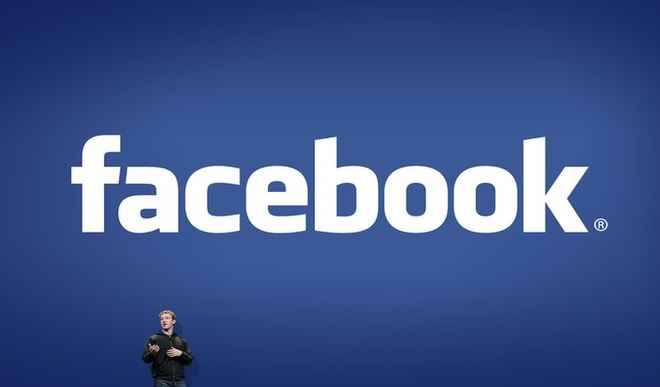On the stalling of Facebook’s growth
By way of market capitalization, Facebook is up there with the world’s leading companies in 2018, at an enviable market value of approximately $542 billion, according to statista.com. Of course, Apple is the most capitalized company in the world with a market value of $927 billion. The others in the top ten are Amazon.com ($778 […]


By way of market capitalization, Facebook is up there with the world’s leading companies in 2018, at an enviable market value of approximately $542 billion, according to statista.com. Of course, Apple is the most capitalized company in the world with a market value of $927 billion. The others in the top ten are Amazon.com ($778 billion), Alphabet (the parent company of Google) ($766 billion), Microsoft ($751 billion), Alibaba (China) ($500 billion), Berkshire Hathaway ($492 billion), Tencent Holdings (China) ($491 billion), JP Morgan Chase ($388 billion), Exxon Mobil ($344 billion), Johnson and Johnson ($341 billion), Samsung Electronics (South Korea) ($326 billion), and Bank of America ($314 billion).
Facebook’s stock took a big hit last week Thursday that resulted in the loss of almost 20 percent of the company’s value, or $120 billion; the biggest single-day loss for any company in history. The Chief Executive Officer (CEO) of the company, Mark Zuckerberg, personally lost $16 billion as a consequence. Obviously we are talking of paper money (stocks) here.
Nonetheless, Facebook is certainly in a good company, for an enterprise that doesn’t have real assets. The astronomical rise of tech stocks in general has been mindboggling, a situation that keeps our memories fresh on the tech bubbles of the Year 2000 when tech companies that were not in existence or were barely months old and with no real assets were being valued at billions of dollars, and ordinary people became millionaires overnight by investing in those “vaporware” stocks. Then market adjustment came, turning “billion-dollar companies” to zero-value companies. Global economy suffered. Some tech stocks have endured and are thriving, with Apple’s being a prime example. In August 2013, Apple overtook Exxon as the most capitalized company in the world at around $415 billion at the time. The 2018 capitalization data above shows that Apple has left Exxon in the dust.
But Apple is different from Facebook, as the former manufactures hardware – something you can touch. Moreover, the barrier for entry for Apple products is formidable. A motivated college student can develop the like of Facebook, as is well confirmed by the fact that the developers of the basic Facebook platform barely had a year of college under their belt. Of course, Facebook has acquired many other companies, such as those that gave it WhatsApp, Instagram, and Messenger; which perhaps require more advanced programming skills than the basic Facebook. Like Facebook, Microsoft started out very modestly and doesn’t survive by tangible assets, but the company has been around for almost 40 years – Facebook was founded in 2004 – with the Windows engine (operating system) and the Office productivity tools as its hard-to-duplicate cash cows. The implication of the foregoing is that Facebook is very vulnerable. I will not be truthful if I say that the company doesn’t fill a need. It does; which is why other companies pay money to advertise on Facebook, providing the means of monetizing Facebook’s operations which are otherwise free-of-charge. True to its original mission, Facebook allows you to connect to your old friends, and in the comfort of your own home. You can connect to what is going on in the world, and in a two-way manner, unlike the one-dimensional mode with newspapers, radio, and TV.
The first problem with Facebook is its business model, which has done extremely well for the company but is dangerous and certainly harmful to consumers. Thousands of Facebook employees are searching for ways to collect more data, so that business entities can buy more ads on the platform. In addition, Facebook consciously makes additive products in order to optimize its scheme for ads. As one person puts it, “If you spend more time looking at stories, you’re going to be exposed to more ads.” Therefore, the company optimizes for engagement. So as you get sad, outraged, and you “like,” “share,” and lose the ownership of your personal data, Facebook makes more money. This column has written extensively on the psychological problems posed to young adults by Facebook.
The recent scandal involving Facebook and Cambridge Analytica appears to have begun the end of Facebook, at least perception-wise, if not financially. In the scandal, Facebook sold the personal data of at least 87 million of its customers to Cambridge Analytica, who in turn used the data to stir political upheavals around the world, including in UK, U.S., Kenya, and Nigeria. Facebook has created an ideal platform for disseminating lies and divisive propaganda. It facilitates killings based on rumors. Also, it does not make you happier and better-connected, but more resentful and anxious.
A wound in Facebook’s financial flesh is the months of scrutiny over Russian misuse of the platform in numerous political campaigns all over the world, including the 2016 American presidential campaign. The Russian mischief is popularly blamed for the election of the current president of the U.S. An event of a few weeks ago might have helped tip Facebook over. The company’s CEO expressed that Facebook would not remove the posts and accounts of holocaust deniers because “people really do feel that way.”
Apparently, many people have had enough of Facebook and do really want to see the company disappear; in line with the “Delete Facebook” movement we witnessed a few months ago.
